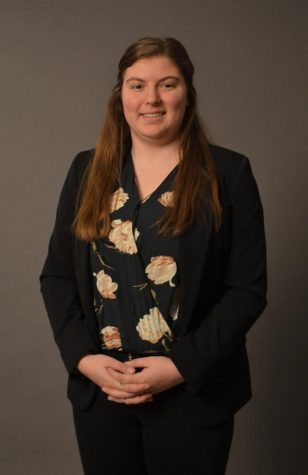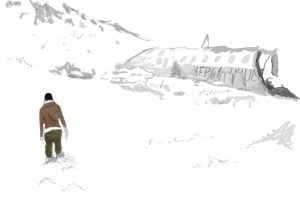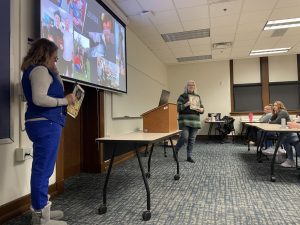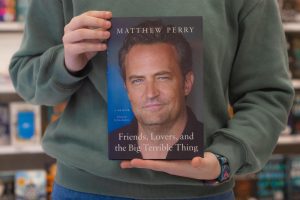A personal narrative on bi erasure

February 13, 2019
“I call myself bisexual because I acknowledge that I have in myself the potential to be attracted – romantically and/or sexually – to people of more than one sex and/or gender, not necessarily at the same time, not necessarily in the same way and not necessarily to the same degree.”
The more I have looked at this definition by activist Robyn Ochs, the more I realize how much this has both been missing from my life and how I have defined my sexuality since junior year of high school.
As I started to write this article I found it increasingly hard to leave my voice out and this piece began to sound dispassionate and empty.
So, I put my voice in.
The erasure of bisexual people is something that has directly affected myself and people whom I care about.
According to a 2010 study by the Center for Disease Control “Bisexual women experienced significantly higher lifetime prevalence of rape, physical violence, and/or stalking by an intimate partner when compared to lesbian and heterosexual women.”
I have experienced this.
Before we explore why this erasure happens I want to stress that this issue does not belong only to bisexuals; it is a shared attack by many in and out of the LGBT community. This article simply focuses on how it affects bisexual individuals identifying as female.
“Monosexism is the process where people who don’t fit neatly into dating either the opposite sex fully or the same sex fully are automatically viewed as suspect and therefore should be policed into making a choice,” said women and gender and sexuality studies professor Mary Jo Klinker.
Monosexism plays into society’s deep socialized animosity toward anything that doesn’t fit neatly into its designated boxes. This is the response that many in both communities have to those who fall under the bi umbrella.
“The really painful thing about monosexism is that it’s not just straight people that hold up the ideology of it,” Klinker said. “In fact, there are gay and lesbian people who are deeply hostile at Pride events to bisexual people. People who are in opposite-sex relationships and therefore perform or appear to be performing straight relationships often times are denied the complexity of their identities.”
This comes to light on dating apps where bi men and women are considered undesirable if they don’t fall into the gay or lesbian box and the term “gold star lesbian” is thrown in the faces of bi women, setting up a superiority complex around sexual behavior that reinforces the narrative of monosexism.
We see examples of this scattered throughout history.
Sylvia Rivera standing up at the Stonewall riot during the Christopher Street March, tried to talk about the incarceration of trans people and was booed off the stage by the “gay establishment.”
How Freddy Mercury was remembered and depicted in the recent bio-pic.
I was able to sit down with Morgan Reddekopp and Shannon Galliart, both sophomores at Winona State who recently came out publicly as bisexual and the three of us talked about our experiences.
“I didn’t really understand that I could be bisexual,” Morgan said. “I eventually learned that it was a sexuality that existed, my friend came out as bisexual and it kinda let me know that it was something that actually existed rather than something I just read about.”
For me bisexuality was presented as a kink or sexual fantasy for my partner’s pleasure.
“People kinda see it as a transitional phase and they’re like ‘Well you’re gonna be like this for a while but then you’re either gonna like dudes or you’re gonna like girls.’ And that’s it,” Shannon said.
Before Shannon came out to her mom they discussed a hypothetical situation where Shannon breaks up with her boyfriend and starts dating a woman, her mother told her that dating a woman wasn’t the life she saw or wanted for her. This echoed a similar conversation I had with my mom when I tried to come out and was asked, “Are you sure you’re not just open minded?”.
“Another annoying thing is when people will ask you to define how bisexual you are,” Morgan said. “One time sophomore or junior year [of high school] my friend was trying to set me up with his friend, a girl, and he asked me what percent gay and straight I am. I don’t even know! How am I supposed to tell you? It depends on the day.”
We spent several minutes comparing annoying questions people have asked:
Have you ever been in a three way?
What percent gay are you?
Does your boyfriend care that you’re bi?
Which do you prefer?
How does your (straight) relationship work?
“As a bisexual I feel like I’m discriminated against not only by straight people but sometimes even by gay people,” Morgan said. “I have a lot of bisexual and pansexual friends, but I also have a lot of gay and lesbian friends and I feel like they sometimes look down on me because I’m not one or the other.”
All three of us are in hetero-passing relationships, which adds to the feeling of not belonging in the community. For me it feels like I haven’t earned a place at the table because I have never been in a same-sex relationship and therefore I don’t have the right to speak about that oppression.
In my interview with Klinker we discussed how attitudes could be changed and she said something that is important to remember for any struggle.
“Some of the most active things that we can do are community organizing, and these are not large-scale movements, but they are about creating healthy communities where we can support one another and we can see the attacks on one another as a shared attack and making space in our community,” Klinker said.
The erasure of one oppression in the fight for equality hurts the entire movement and the group can’t be focused on achieving its goals if it’s too preoccupied with spreading the same hate they fight against.
Bi people exist, we are here, and we want our seat at the table.

































